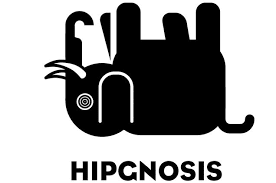Hipgnosis Songs Fund Considers Blackstone’s $1.488 Billion Takeover Amid Market Interest
Overview of the Takeover Proposal

Hipgnosis Songs Fund, known for acquiring high-value music royalties, is assessing a significant takeover offer from Blackstone, valued at £1.2 billion (approximately $1.488 billion). This comes after an initial agreement with Concord and Apollo Global Management for £1.1 billion (around $1.364 billion). The company’s strategic market position and its catalog rights to music by artists like Justin Timberlake and Shakira are central to the heightened interest from these major financial players.
Strategic Acquisitions and Market Dynamics
Founded in 2018, Hipgnosis Songs Fund has aimed to capitalize on long-term returns from music royalties, a strategy increasingly viable in today’s streaming-dominated music industry. Despite a notable drop in share value since its debut, the firm saw a 10% increase in its share price recently, signaling a potential turnaround and renewing investor interest.
Blackstone’s Investment Confidence
The offer from Blackstone not only reflects a robust confidence in Hipgnosis’ future but also marks an increase from earlier investment levels during the pandemic, when Blackstone initially partnered with the firm to leverage the boom in digital music consumption. This bid could enhance Blackstone’s influence in the music rights arena, demonstrating a bullish outlook on the profitability of music royalties.
Decision Point for Hipgnosis
Hipgnosis stands at a critical decision-making crossroads. The choice between Blackstone’s higher bid and the standing agreement with Concord and Apollo involves not just financial considerations but strategic alignments as well. Each option offers distinct paths for growth and partnership, influencing the company’s future direction in the global music royalty market.
Implications for the Music Industry
As Hipgnosis Songs Fund deliberates these offers, the broader music industry watches closely. The decisions made will likely impact how music royalties are valued and traded in a market increasingly reliant on streaming revenues. These developments could set new precedents for future dealings in music intellectual property, shaping the landscape of music rights management.
Conclusion
The unfolding scenario around Hipgnosis Songs Fund’s potential takeover offers a window into the evolving dynamics of the music industry, highlighting the increasing value of music royalties as a financial asset. The outcome of this decision will be pivotal, not just for the involved parties but for the industry at large.

